Join us for conversations that inspire, recognize, and encourage innovation and best practices in the education profession.
Available on Apple Podcasts, Spotify, Google Podcasts, and more.
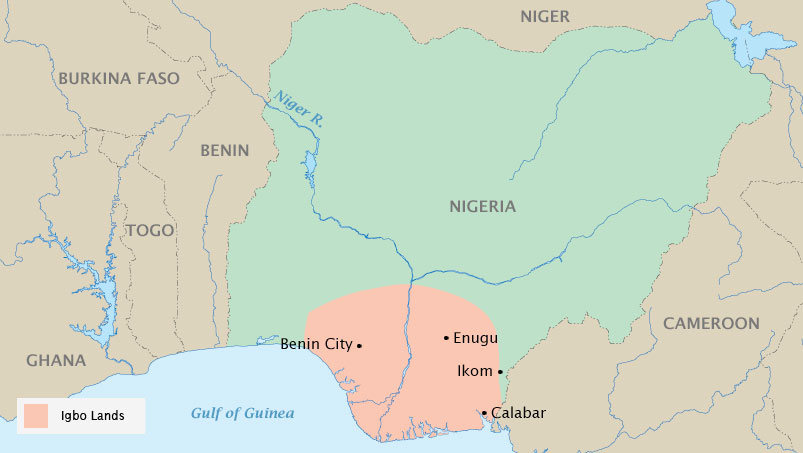
The pink area shows the Igbo lands, where the action of the novel takes place.
© 2010 Map Resources, All rights reserved.
Every border you see on this map was drawn by a European power; Nigeria, which contains the Igbo lands of the novel, was created by the British. The map of Africa looked very different before the 1800s, before the arrival of colonizing European powers. The Igbo lands in the heartland of the Niger River valley (now southeastern Nigeria) were not expansive, but they created and nurtured a distinct culture for many centuries. Despite the artificial divisions and boundaries created by empire, the traditional cultures of Africa live on.
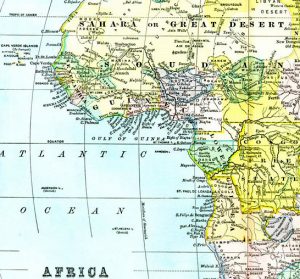
Oligarchies and large commercial states dominate Igbo lands on Africa’s Gulf of Guinea.
The Onitsha Kingdom is founded in the 1500s.
The kingdom of Borno in today’s western Nigeria reaches its height.
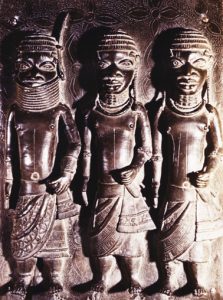
Western Igbo kingdoms dominate trade in the lower Niger region.
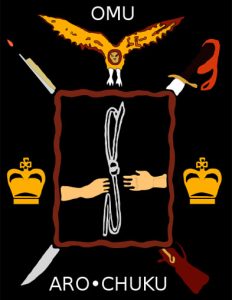
The Arochukwu kingdom oversees creation of the Aro Confederacy, which ruled what are today’s mid-western and eastern Nigeria and parts of modern-day Equatorial Guinea and Cameroon.
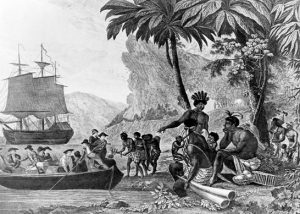
Following the end of the Napoleonic wars between France and Great Britain, Britain begins to trade with the interior, calling the region “Nigeria” based on the path the Niger River takes through the area.
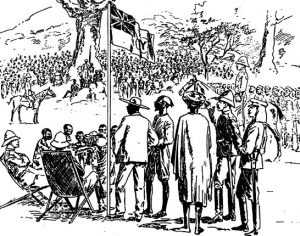
Britain charters the Royal Niger Company to claim a sphere of influence in Nigeria.
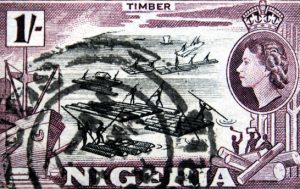
Nigeria becomes a British protectorate ruled by Great Britain.
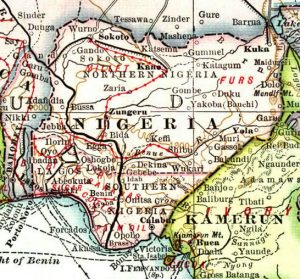
Igbo, Yoruba, and Hausa areas are officially united under Britain as the Colony and Protectorate of Nigeria.
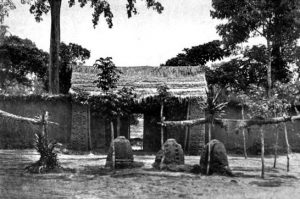
Chinua Achebe is born in the Igbo village of Ogidi.
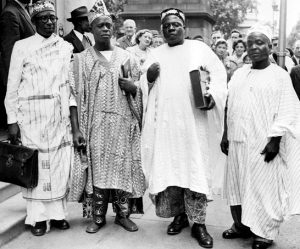
Nigerians demand independence.
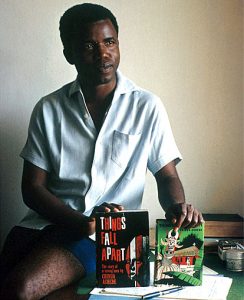
Things Fall Apart is published in England.
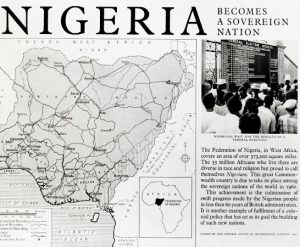
Nigeria gains independence, as a parliamentary democracy.
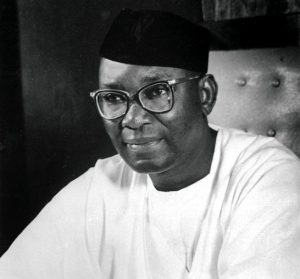
The First Republic is created.
The government is overthrown by a group of army officers, mostly Igbos; another coup follows in which thousands of Igbos are massacred.
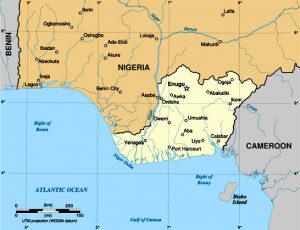
Igbos in the southeast declare independence from Nigeria, establishing the Republic of Biafra; the Nigerian Civil War (also known as the Biafran War) begins. Achebe’s house is bombed after he protests the war.
Achebe chairs the National Guidance Committee, which publishes The Ahiara Declaration, a statement of principles and ideals for post-war Nigeria.
The Nigerian Civil War, or Biafran War, ends with the defeat of the Igbos.
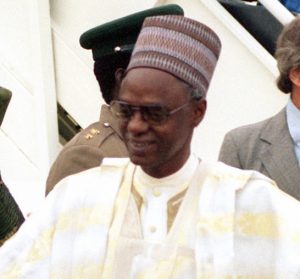
The period of the Second Republic, marked by much political unrest and overturned election results.

The period of the Third Republic, during which the country is ruled by a dictator, Sani Abacha.
The period of the Fourth Republic, democratically voted in.
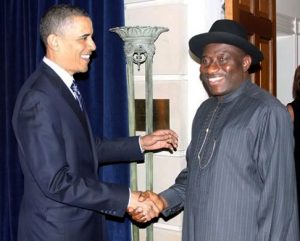
President Goodluck Jonathan takes office after Umaru Yar’Adua dies suddenly in office.